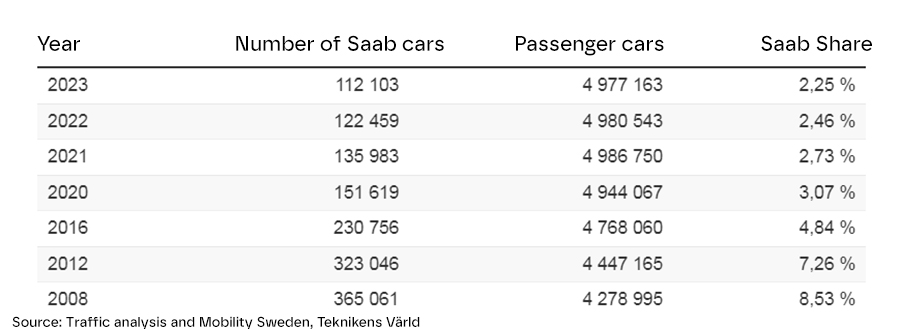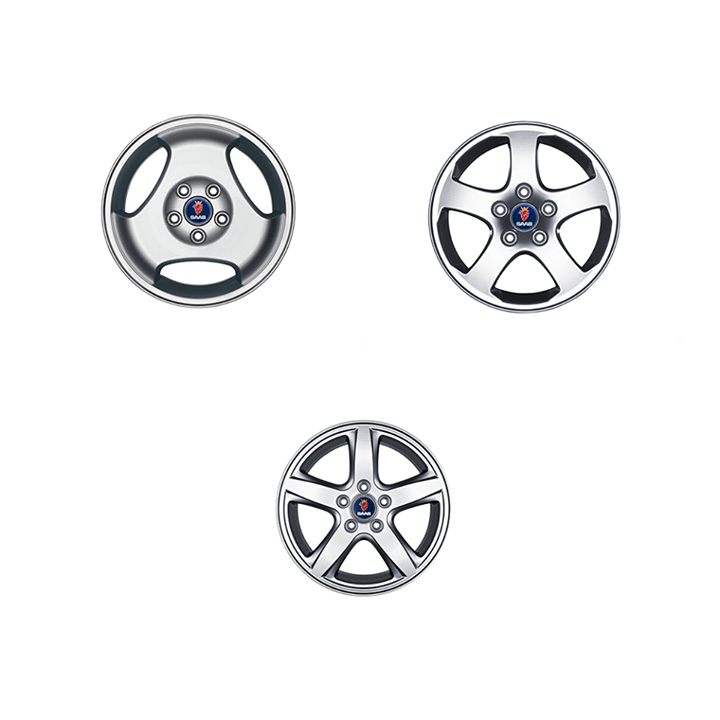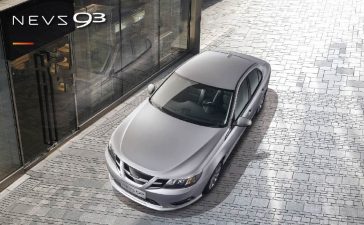The Swedish automotive industry, once the pride of the nation with stalwarts like Saab and Volvo, has seen significant changes over the past decades. While Volvo continues to innovate and thrive, Saab, a brand that once symbolized Swedish ingenuity and resilience, is slowly disappearing from the roads. The latest data on the number of registered Saab cars in Sweden highlights this concerning trend.
Table of Contents
A Steady Decline in Numbers
As of December 31, 2023, there were 112,103 Saab cars registered in Sweden. This number represents a mere 2.25% of the total 4,977,163 passenger cars in the country. Just a year earlier, in 2022, there were 122,459 Saabs, accounting for 2.46% of the total passenger car fleet. The decline is even more pronounced when we look back further: in 2016, there were 230,756 Saabs on Swedish roads, making up 4.84% of the total. In 2008, Saab’s presence was much more significant, with 365,061 cars, or 8.53% of all passenger vehicles.

For more detailed information and data on this topic, you can refer to the article published by Teknikens Värld here.
Factors Contributing to the Decline
The decline in the number of registered Saab cars can be attributed to several factors. Firstly, the cessation of production over a decade ago means no new Saab cars are entering the market. The last Saab, a 9-3 Aero Sedan Turbo4, rolled off the production line in April 2014 and was auctioned in 2019, eventually leaving Sweden for export in 2020. This lack of new models has naturally led to a gradual reduction in the number of Saabs on the roads.
Moreover, as these cars age, they become more prone to severe breakdowns and unprofitable repairs. While spare parts are generally available, the increasing age of these vehicles inevitably takes its toll. Additionally, a significant number of Saab cars have been scrapped over the years. From 2016 to 2022, approximately 100,000 Saabs were scrapped in Sweden, averaging about 18,000 cars per year. If this trend continues, Saab cars could almost vanish from Swedish roads by 2034.
Impact of Exports and Accidents
Another contributing factor to the decline is the export of Saab cars. Between January 2016 and March 2022, Sweden exported 9,295 Saab cars, a number ten times higher than the imports during the same period. This trend was temporarily slowed by the COVID-19 pandemic, which reduced the number of exported vehicles. Traffic accidents also play a role, with many Saabs being written off and removed from the registry each year.
Enthusiasts Keep the Legacy Alive
Despite the grim statistics, Saab cars are unlikely to disappear completely from Swedish roads. Enthusiasts and collectors continue to maintain and cherish their Saab vehicles, preserving the brand’s legacy. Organizations and clubs dedicated to Saab enthusiasts ensure that these cars remain in good condition and on the road for as long as possible. Events like Saab gatherings and festivals, both in Sweden and internationally, celebrate the brand and bring together owners and fans from around the world.
The Future of Saab Parts and Conversion to Electric
One of the key concerns for Saab owners is the availability of spare parts. Fortunately, companies like Orio AB, which has committed to producing and delivering spare parts for Saab cars, provide some reassurance. There are also discussions about the potential conversion of Saab cars to electric power. While this idea is technically feasible, the cost and practicality of such conversions remain a topic of debate among enthusiasts.
A Nostalgic Farewell
The decline in the number of registered Saab cars in Sweden is a poignant reminder of the brand’s fading presence. However, the spirit of Saab lives on through its dedicated community of enthusiasts who continue to celebrate and preserve these iconic vehicles. As we move towards a future dominated by electric and alternative energy vehicles, the sight of a Saab on the road will become increasingly rare, making each encounter a nostalgic reminder of a bygone era in Swedish automotive history.
For additional insights and historical context, refer to the article from Saab Planet here.












Well, some of them have been exported here into finland. Year after year the brand is on the top 30 imported list.
Considering that SAAB stopped making cars in 2011/12 I think the rate of decline in ownership is normal. I still have my 2011 Ttid . It always was a niche market car imo. It would be interesting to see ownership numbers before and after GM (eg 2004) took it over only to see its affect on the Swedish customer. Exports probably increase through the GM distribution network.
Fortunately, many of the classics survive. The NG900/9-3 convertible are becoming classics now.
They are becoming history
And those ones that are still here will sometime get nice price boost whrn people understand that dont scrap them wirh some small fault. People are just ignorant and stupid and soon they will be mad cause they are more expensive than ever. Luckily i have 3 and i will keep them alive as long as i breath. Save saabs dont scrap them easy fix to the situation.
Some are simply sold in other countries, they are not all ending in scrapyards…
6000+ in Taiwan as of June
Fantastic figure of one of Saabs best markets! 🤗🇹🇼
Premium Cars and winter climate/corrosion no issue. 😉🇸🇪
In Hungary more less… in 2023 only 4935
Still, 112,000 SAABs are still a lot!! 💪
That’s honestly still a lot more saabs than I thought
It is amazing how much Saabs you can still see in Zurich.
I was surprised to know from a Swedish customer that corrosion is an issue on cars around coastal area in Sweden. Of course we have our issue of humidity here as well but still it blew my mind.
Not Only at the coastal area due to a lot of salt spread on the roads in all mid/south of Sweden! If you do not add rust oil treatment now and then you Will have a problem later on!
Yes, heard of your high humidity issue from relative living in Taipei!
Surprising how many 93’s there are still on the roads here in Northern Ireland.
Recently l had cause to be at a petrol filling station/Garage that used to be a SAAB dealership. The SAAB totem is still at the forecourt, SAAB signage is still on the front of a small showroom and behind what had been the main showroom, there are various 93’s and 95’s parked in a locked yard.
Is there any experienced trolls alive?